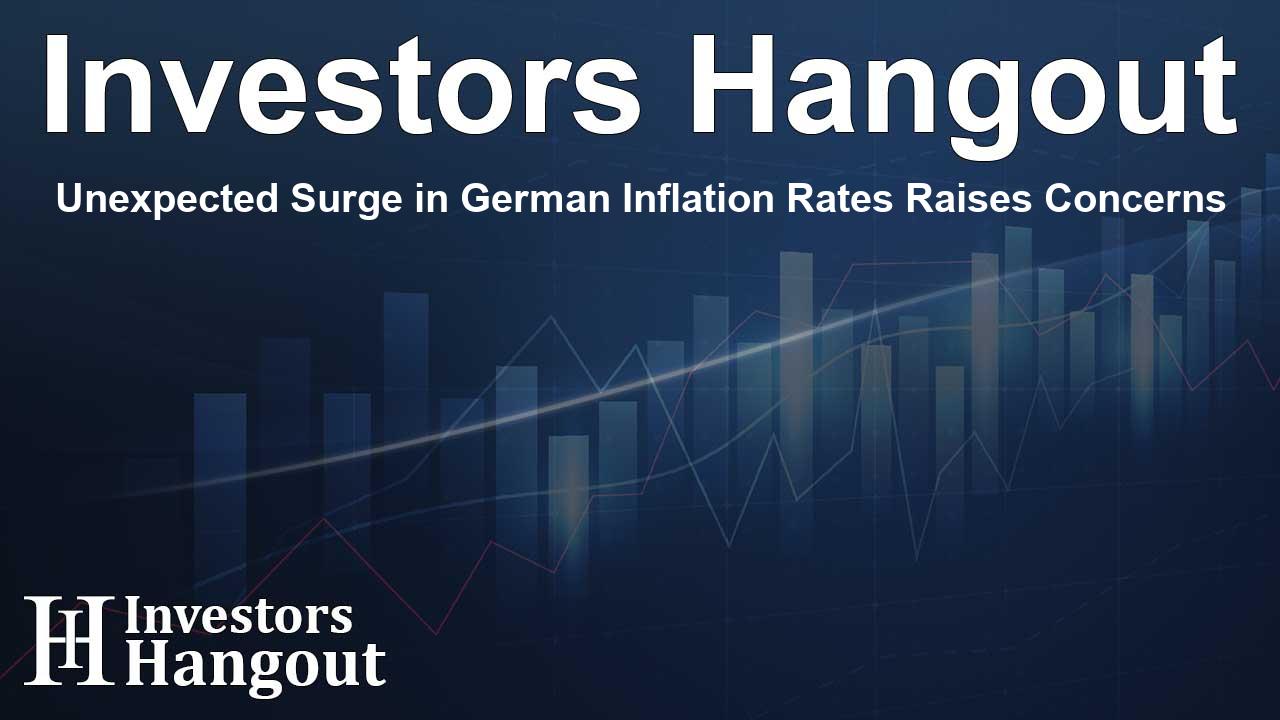Unexpected Surge in German Inflation Rates Raises Concerns

Unexpected Rise in German Inflation for December
BERLIN - Recent figures indicate that German inflation has jumped to an unexpected 2.9% in December, a trend that analysts did not foresee, according to preliminary data released by the federal statistics office.
Understanding the Forecast Discrepancy
Prior expectations from analysts polled had indicated a more modest inflation rate of 2.6% for the same period. This marks a significant rise from the year-on-year increase of 2.4% consumers experienced in November. These readings are aligned with data intended for benchmarking against other nations in the European Union.
Core Inflation Insights
Looking deeper into the numbers, core inflation—which deliberately excludes the often volatile prices of food and energy—saw a slight uptick from 3.0% in November to 3.1% in December. This suggests that underlying price pressures are persisting in the economy.
Price Trends in Key Sectors
Examining sector-specific statistics, energy prices demonstrated a decline of 1.7% when compared to the previous year. In contrast, consumers saw food prices rise by 2.0% year-on-year during December. This divergence illustrates ongoing challenges within the economy, especially concerning essentials that impact daily life.
The Broader Economic Context
National inflation figures attract significant attention, particularly since Germany releases its data just a day prior to the euro zone’s inflation numbers. The broader euro zone is anticipated to experience a rise in inflation to 2.4% in December, increasing from 2.2% seen in November.
Central Bank Perspectives
The European Central Bank forecasts that inflation may stabilize around its target of 2% for the year ahead. This prediction comes on the heels of a tumultuous period where inflation rates soared to double-digit levels following geopolitical events, particularly the escalation of tensions stemming from Russia's invasion of Ukraine in 2022.
Future Implications
With these recent developments, both consumers and policymakers are likely to keep a close eye on inflation trends. Rising inflation can significantly influence monetary policy decisions, affecting interest rates and economic growth outlooks. As the global economy navigates through these challenging conditions, understanding these inflationary pressures becomes essential for both consumers and businesses alike.
Frequently Asked Questions
What is the current inflation rate in Germany?
The current inflation rate in Germany is 2.9% for December.
How does the rise in inflation affect consumers?
Rising inflation often leads to increased prices for goods and services, impacting purchasing power.
What is core inflation?
Core inflation excludes the prices of food and energy, providing a clearer picture of underlying price trends.
What was the inflation rate in the Eurozone for November?
Inflation in the Eurozone was recorded at 2.2% in November.
How does inflation influence monetary policy?
Inflation significantly impacts monetary policy, including decisions on interest rates and economic growth strategies.
About Investors Hangout
Investors Hangout is a leading online stock forum for financial discussion and learning, offering a wide range of free tools and resources. It draws in traders of all levels, who exchange market knowledge, investigate trading tactics, and keep an eye on industry developments in real time. Featuring financial articles, stock message boards, quotes, charts, company profiles, and live news updates. Through cooperative learning and a wealth of informational resources, it helps users from novices creating their first portfolios to experts honing their techniques. Join Investors Hangout today: https://investorshangout.com/
Disclaimer: The content of this article is solely for general informational purposes only; it does not represent legal, financial, or investment advice. Investors Hangout does not offer financial advice; the author is not a licensed financial advisor. Consult a qualified advisor before making any financial or investment decisions based on this article. The author's interpretation of publicly available data shapes the opinions presented here; as a result, they should not be taken as advice to purchase, sell, or hold any securities mentioned or any other investments. The author does not guarantee the accuracy, completeness, or timeliness of any material, providing it "as is." Information and market conditions may change; past performance is not indicative of future outcomes. If any of the material offered here is inaccurate, please contact us for corrections.